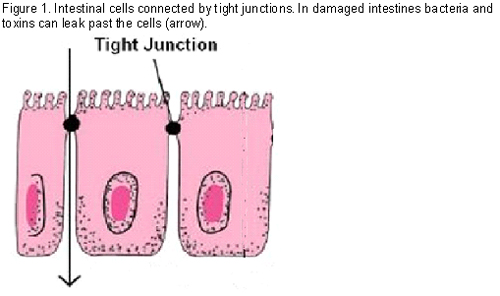Feeding for healthier intestines in piglets

Research by leading animal nutrition company Provimi has found that piglets with higher feed intakes and on specific diets have healthier intestines and perform better than piglets on lower intakes and diets with different components.
“The intestine plays an important role in fast-growing animals,” says Dr. Albert van Dijk, swine manager at Provimi. “It has to digest feed and absorb nutrients as well as exclude undesirable substances such as bacteria and toxins. In piglets, an unhealthy intestine can leakbacteria such as Streptococci, causing inflammation ofmeninges, heart and joints. Also, a build up of toxins such as clostridium bacteria can end up in the blood and cause illness.”
Intestinal cells are interconnected by tight junctions. In a healthy intestine these connections are strong and barely permeable. In a damaged intestine, such as in piglets post weaning, the tight junctions are looser which may result in leaking.
The intestine needs many and specific nutrients and if this supply falls short it will become damaged. The intestinal villi will become shorter which decreases the digestion and absorption of the feed. Therefore nutrients will stay in the intestine longer and function as a breeding ground for unwanted bacteria. The intestines will also start to leak which will result in toxins from these bacteria, or even the bacteria themselves, entering the body via the bloodstream.
Work at the Provimi Research Centre ‘De Viersprong’ has measured the degree of intestine leakage by measuring lactulose in the urine. Piglets are fed lactulose; a synthetic, non-digestible sugar not normally digested and that does not enter the bloodstream in the case of a healthy intestine. However, in a damaged intestine lactulose will leak through the intestinal wall and is excreted in the urine. A measure of lactulose is a measure of intestinal damage – the more that is retrieved, the bigger the damage.
Dr. Peter Wijtten, research manager at Provimi adds: “Our results showed that less lactulose was excreted in piglets with higher intakes indicating that these piglets had healthier intestines that are less permeable to unwanted substances. The research also studied the nutrients that caused least damage. It was found that piglets fed on diets rich instarch excreted less lactulose compared with protein diets, indicating that the starch partly prevents intestinal damage.
The company has used its research to develop its new prestarter range of piglet feeds, HeavyPig, and its sow milk replacer, RescueMilk. These products ensure a higher intake and absorption and provide the intestines with specific components that counteract intestinal damage.











